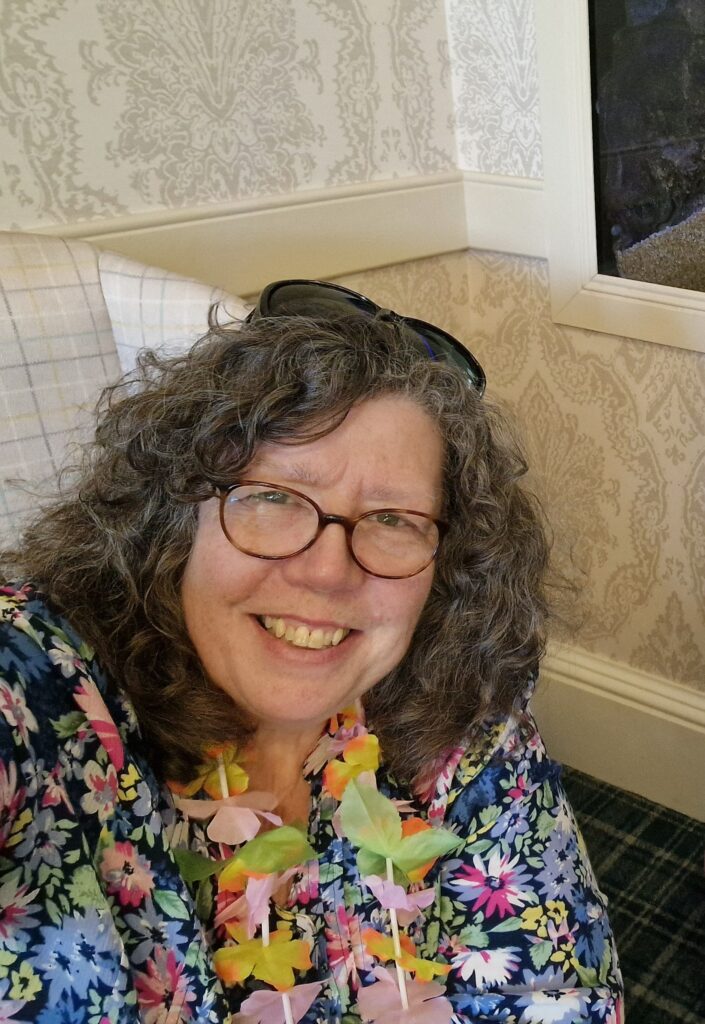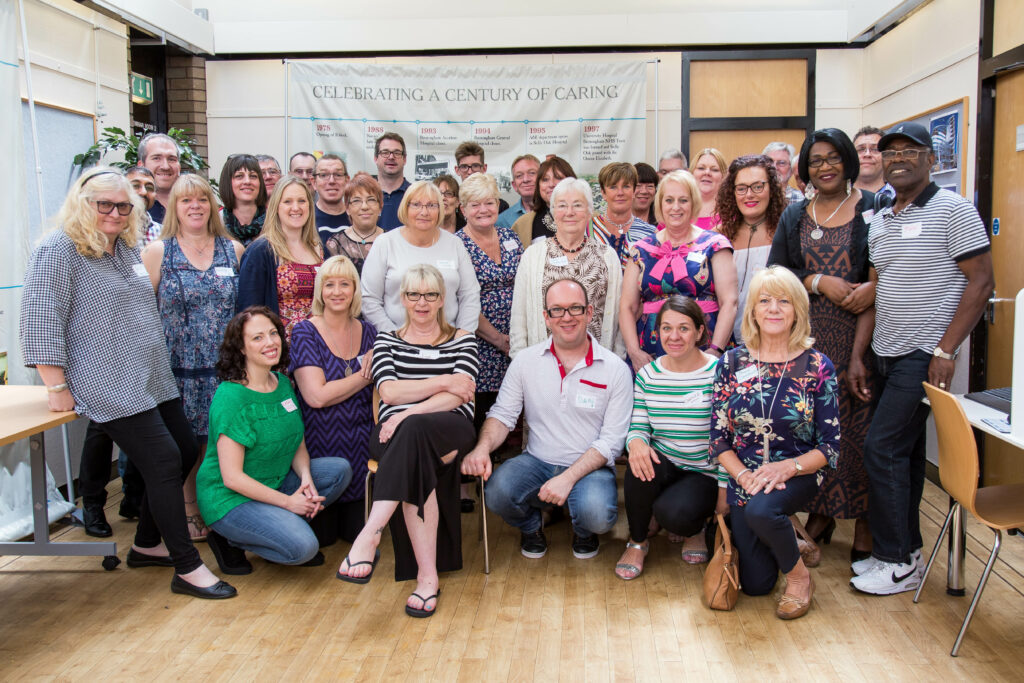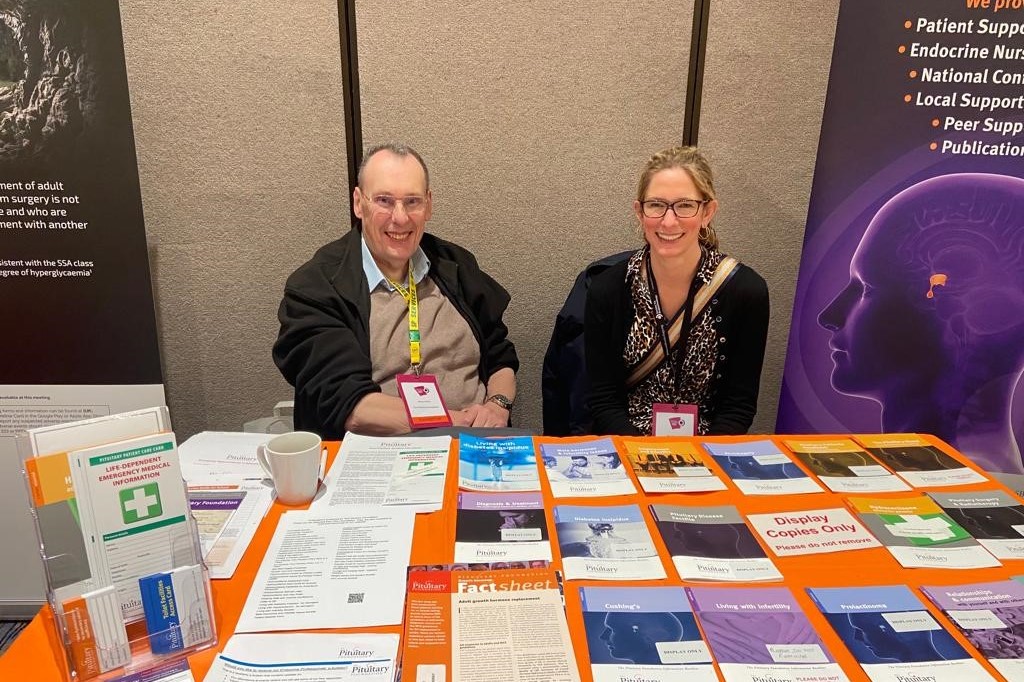Meet Ann, a volunteer with The Pituitary Foundation who volunteers on the General Information Helpline.
My Story
In 2007, after years of blocked sinuses and sharp head and face pains, I had surgery to remove a mucocele blockage in my sphenoid sinus. A week later I was informed the blockage was in fact a pituitary tumour that had burst into my sinus cavity. Suddenly everything made sense.
I had been on cabergoline for slightly high prolactin for several years. It didn’t meet the threshold for an MRI, so I’d never had one. Pathology from the sinus surgery revealed the tumour was growth hormone producing, although my IGF-1 level was within the normal range. I didn’t really have noticeable features of acromegaly at that stage, although my feet and hands had become wider.
I had pituitary surgery about a year later. It was only after this that my IGF-1 level started to rise and I became very unwell with debilitating head and neck pain and fatigue. A small remnant of tumour that remained around my carotid artery was to blame.
I tried various combinations of medications and had radiotherapy in 2013. In 2015, I started Pegvisomant injections, after which I started to get my life back. My symptoms didn’t disappear, but they became much more manageable and I started to look for new things for do.

The Helpline
By 2017 I was looking for a sense of purpose, something that made use of my experience and the knowledge I’d gained over the years. I started volunteering on the telephone helpline and now do a three-hour shift, twice a week.
You never know who will call or how busy you’ll be. Every call, and every caller, is different. Most calls are from patients, sometimes a partner or parent, but I’ve even had a call from an endocrinologist!
People may come with a specific query, such as looking for sick day rules for adrenal insufficiency, or information about a particular condition. Recently there have been a lot of calls about the shortage of desmopressin spray for AVP-D. In these cases, we can provide the information required or direct the caller to the appropriate information on our website or in one of our YouTube videos.
Other callers are looking for wider support. Being diagnosed with a pituitary condition can be challenging, whether it’s been a sudden, unexpected diagnosis or after many years of ill health and unexplained symptoms. Once diagnosed, managing a lifelong condition can present its own challenges. The main thing is to listen to the caller, encourage them to tell you about their situation and let them know how you might be able to help. This might included signposting to other resources, such as a Local Support Group (it’s great that we have had a number of new groups starting around the country) or a telephone buddy with the same condition. Sometimes, just being able to talk to a fellow patient is enough and provides the reassurance the caller is looking for.
Why I Volunteer
It’s wonderfully interesting to speak to people from all over the UK and sometimes beyond, and to hear about their fascinating journeys with a pituitary condition. I’ve also learnt so much more about pituitary conditions, health and living with a chronic condition.
“There’s no better feeling than when a caller tells you how helpful the call has been…”
When I started on the helpline it was probably more about giving back and occupying myself. I hoped I could help but I had no idea how incredibly rewarding it would be and how it can really make a difference. There is no better feeling than when a caller tells you how helpful the call has been, or how much better they feel having been able to talk to someone who understands their situation. It’s one of the best things I’ve ever done and if you’re thinking of giving it a go, I can thoroughly recommend it.











